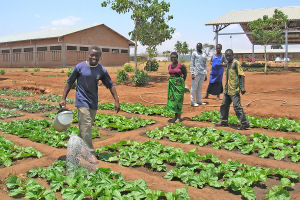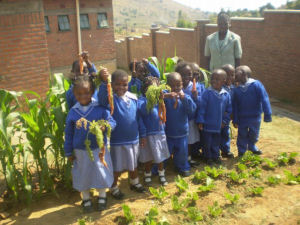Overcoming food costs in Malawi
24/07/2008

Despite increasing costs for stapel foods such as maize, Malawi has managed to overcome the sharp increases as they are prepared for food shortages. A series of food crisis, particularly during the 2005 season, when an emergency food programme was launched by SOS Children. Over 4.2 million were affected by this crisis and communities were supported by the distribution of food packages through SOS Social Centres.
Malawi’s main harvest takes place from March to July with the Winter harvest occuring during September to December. The peaks are during the winter months from December to February when there has often been shortages in staple foods such as maize. Rainfall during the 2007/2008 season has meant that not all of the country has had sufficient rain for crops, especially those planted late in the season. In addition there is a forecasted drop in the amount of maize to be harvested from the season.
Currently, an export ban is inplace so that stocks of maize and related products are not depleted and food security is ensured. Exports like this have previously been blamed for the shortages, in addition to climate features.
The SOS Nursery School Blantyre has embarked on a serious gardening project this season (2008). There is massive awareness of environmental issues taking place there and of course highlights the need for sustainable alternatives during the food crisis which also deal with anticipated local food deficits.
Time to harvest the crop

The children are helped in sowing different crops in their gardens. Their favorite crop that was sown was carrots. The children were amazed to see the small seed being sown and how it could grow into a carrot as they were seeing on pictures. They patiently watered the crop for over 40 days.
On one sunny day it was time to harvest their crop. You could see the look of bewilderment on their faces when they saw the beautiful orange carrots being uprooted. Little Chisomo, 4 hears old, was so amazed that he asked his teacher: "Who put the carrot in the ground? I thought we put a small black thing in the ground"? The teacher explained once again to Chisomo and the other children how the carrot came about. In the garden there are also some vegetables and a good crop of maize. The children ate the carrots at school and some took theirs to share with their families.
Some parents came to the nursery and expressed their appreciation to the teaching staff saying how the children enjoyed cultivating crops at this early age because agriculture is the backbone of our economy here in Malawi. Children will grow up knowing the benefits of the agriculture industry and later practice it when they are grown.
Relevant Countries: Malawi.